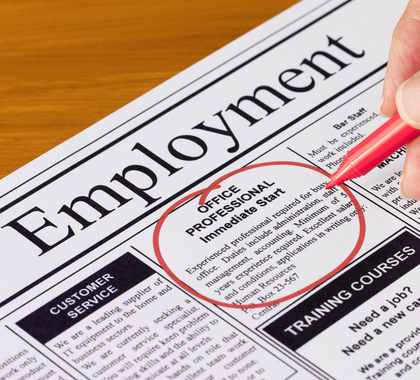The Michigan Legislature is considering several bills that would reform the state’s occupational licensing laws to provide clearer definitions for the “moral character” clauses used by licensing board to disqualify applicants.
Overly broad morals clauses can create a barrier to gainful employment for individuals who have been convicted of a crime or had other contact with the criminal justice system, says Jarrett Skorup, director of marketing and communications for the Mackinac Center for Public Policy.
“For some [occupations], this is an outright ban on anyone with a felony record: teachers, prison workers, nurses, doctors, lawyers, and more,” Skorup said.
For other occupations, guidelines adopted by the state Department of Licensing and Regulatory Affairs (LARA) allow the government to keep people from working, says Skorup.
“For most of the rest, the licensing department and board can use their power to restrict people with any criminal record—even misdemeanors—from being allowed to work, through ‘good moral character’ provisions,” Skorup said.
Work Reduces Recidivism
More than 500,000 adults in Michigan have a criminal record. Each year, about 50,000 residents are convicted of felonies, and some 50,000 Michiganders convicted of felonies return to society. Recidivism rates drop significantly when people have gainful employment after leaving prison, says Skorup,
“The research is clear: The number one way to prevent a person from returning to prison is for them to find work,” Skorup said.
“A consistent job cuts the recidivism rate down substantially and leads to higher incomes, more taxes being paid, higher marriage rates, fewer kids out of wedlock, and many, many other benefits,” Skorup said.
Convictions Not ‘Sole Standard’
H.B. 4488—and related measures H.B. 4489 through H.B. 4492 that would take effect only if the first bill passes—would clearly define the “good moral character” standard used in licensing various occupations, says Matthew Glans, a senior policy analyst at The Heartland Institute, which publishes Budget & Tax News.
“The bills would clarify that licensing boards or agencies would not be allowed to use a judgment from a civil action as evidence of bad moral character,” Glans said. “Licensing boards would also be prohibited from using a criminal conviction as the sole standard upon which to base a decision.” Glans said.
“Licensing boards would be mandated to use other factors when considering an applicant who has previously committed a crime, including whether the crime would have a direct negative effect on the individual’s ability to work within a particular field and how long ago the crime was committed,” Glans said.
Another measure would mandate transparency in the process, says Glans.
“H.B. 4493 would require the state [LARA] to file an annual report to the Michigan Legislature outlining the number of people denied a license due to a ‘lack of good moral character’ and the reasons given for these denials,” Glans said.
‘Directly Related … to Work’
The measures, introduced in the House on May 20, would change the presumption in occupational licensing in the state, says Skorup.
“This bill package reverses that by saying the state will only deny state permission to work if the criminal background is directly related to the industry someone wants to work in, giving people the ability to know if their criminal background will prevent them from working and providing a path to appealing that decision,” Skorup said.
The decision to hire ex-felons should be left up to individual employers, not coopted by the state, says Skorup.
“Nobody should be forced to hire someone with a criminal record if they don’t want to, but, especially at a time when businesses claim they can’t find enough qualified workers, the state should not unnecessarily stand in people’s way of finding gainful employment,” Skorup said.
Prison Job Training Wasted
Many states have training programs in prison to teach trades for future employment, says Matt Mitchell, director of the Equity Initiative at the Mercatus Center at George Mason University.
“Many states spend taxpayer money training those in prison, as part of the rehabilitation process, to teach them new skills,” Mitchell said.
This money is wasted when “good moral character” laws keep newly released prisoners from finding work, says Mitchell.
“There are stories of states spending thousands of dollars teaching somebody to be a barber, only for them to get out of jail and the barbering board refusing them a license because they had been convicted of a crime,” Mitchell said.
Question of Relevance
For many occupations, an applicant’s particular offense may not pose a problem, says Mitchell.
“One of the more constructive reforms is to make sure that the crimes are relevant to the case at hand,” Mitchell said.
“It is important to note that those with prior experience with the justice system are at a particular disadvantage because of these laws,” Mitchell said. “Of course, there are other groups that find occupational licensing to be a particular barrier to work—everybody from military spouses to immigrants to ethnic minorities—but those with prior convictions are at a particular disadvantage.”
Finding gainful employment is a vital part of the rehabilitation process, says Mitchell.
“One of the greater predictors of recidivism is unemployment,” Mitchell said. “If we are closing avenues of people finding gainful work after release, ironically we may be encouraging them to continue a life of crime.”
Jeff Reynolds ([email protected]) writes from Portland, Oregon.
Internet Info
Matthew Glans, “Research & Commentary: Lawmakers Can Improve Job Opportunities for Michigan’s Ex-Offenders by Reforming Occupational Licensing,” The Heartland Institute, June 4, 2019: https://heartland.org/publications-resources/publications/research–commentary-lawmakers-can-improve-job-opportunities-for-michigans-ex-offenders-by-reforming-occupational-licensing



